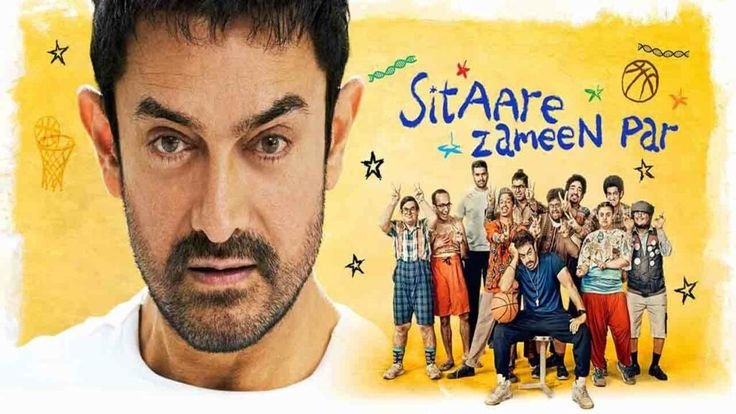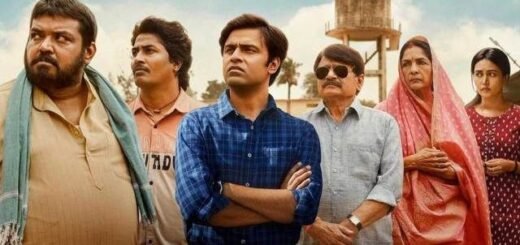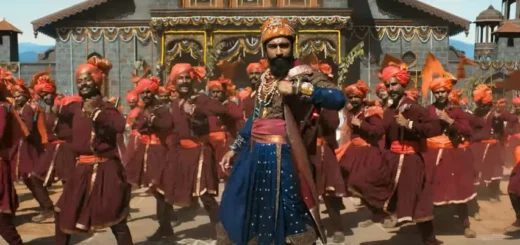Sitaare Zameen Par: An Emotional Reawakening in Indian Cinema

Sitaare Zameen Par, the latest offering from Aamir Khan Productions, reintroduces audiences to a style of cinema that blends social consciousness with heartfelt storytelling. Directed by R.S. Prasanna, known for Shubh Mangal Saavdhan, the film brings a fresh voice to the screen, fusing sports, comedy, and emotional drama in a manner that resonates across generations. Scheduled for a June 20, 2025 release, this film marks Aamir Khan’s return to the big screen after a three-year gap and aims to spark important conversations about inclusivity, empathy, and normalcy.
Narrative and Theme
Inspired by the Spanish film Champions, Sitaare Zameen Par tells the story of a hot-headed basketball coach who receives a court order to perform community service by coaching a team of adults with intellectual disabilities. Initially, the coach treats the assignment as a punishment. He mocks the players, underestimates their potential, and struggles to connect. Over time, the coach undergoes a transformation as he begins to see the uniqueness in each player. The story evolves into one of mutual growth, self-discovery, and human connection.
The tagline, “Sabka Apna Apna Normal,” captures the soul of the film. It challenges the notion of a single definition of normal and argues for acceptance of diverse abilities. Rather than preach, the film uses humor and raw emotion to drive home its message, making it palatable and powerful for a wide audience.
Performances and Casting
Aamir Khan delivers a grounded, passionate performance as the flawed but evolving coach. He portrays a man torn between arrogance and empathy, ultimately choosing the path of transformation. His portrayal never overshadows the ensemble cast but supports it with sincerity.
Genelia D’Souza plays a key supporting role. She brings grace and emotional stability to the narrative, anchoring the protagonist’s emotional development. Her chemistry with Khan enhances the authenticity of the story.
The film introduces ten debut actors who live with intellectual disabilities. These performers—Aroush Datta, Gopi Krishna Varma, Samvit Desai, Vedant Sharma, Ayush Bhansali, Ashish Pendse, Rishi Shahani, Rishabh Jain, Naman Mishra, and Simran Mangeshkar—elevate the story. Their natural screen presence and sincerity create the emotional core of the film. The director showcases their strengths without exaggerating their conditions or reducing them to stereotypes.
Direction and Vision
R.S. Prasanna approached the subject with careful research and creative conviction. During the early stages, he engaged in extensive discussions with Aamir Khan to shape the film’s tone and moral depth. He crafted each scene to balance comedy with drama, avoiding emotional manipulation or over-sentimentality.
The director refused to frame the players as objects of pity. Instead, he treated them as equals in a team, with personalities, ambitions, and talents of their own. This creative decision changes the emotional temperature of the film. Audiences connect not out of sympathy but through mutual admiration and shared humanity.
Music and Technical Craft
The music trio Shankar–Ehsaan–Loy composed the film’s soundtrack. They infused each song with lyrical depth and emotional cadence. Amitabh Bhattacharya’s lyrics add soul to the characters’ journeys. The background score avoids melodrama and complements the subtle emotional cues of the screenplay.
Cinematography captures the basketball court as more than a sports arena. It transforms into a space of healing, acceptance, and triumph. Close-ups emphasize individual expressions, while wider shots illustrate team unity. Editing moves briskly, keeping the pace energetic without rushing the emotional beats.
Audience Reaction and Early Screenings
The film hosted several pre-release screenings for select audiences, including members of the Muskan Foundation, educators, and mental health professionals. Sudha Murty, author and social activist, watched an early screening and described the film as “an eye-opener.” She praised its sensitivity and simplicity, noting how it gently dismantles societal prejudice.
Viewers responded with praise for the emotional twist in the final act. Many called the film a “perception-changer,” comparing its impact to Aamir Khan’s earlier milestone Taare Zameen Par. Attendees described the film as “tear-jerking, humorous, and uplifting.”
Social Media Buzz and Public Debate
The trailer sparked widespread interest, trending across platforms. Most reactions praised the representation of neurodivergent individuals and the humor embedded in their personalities. However, some viewers questioned the originality of the trailer, pointing to similarities with Champions. Critics initiated debates on whether the Indian remake adds new dimensions or merely mimics its source.
A few users expressed skepticism about the portrayal’s realism. They questioned whether the film glamorizes the experience of those with intellectual disabilities or addresses the day-to-day challenges they face. Yet, defenders of the film highlighted that its core strength lies in offering hope, not documenting hardship.
Distribution and Release Strategy
Aamir Khan confirmed a full-scale theatrical release across India on June 20, 2025. Contrary to speculation, the production team ruled out an initial release on streaming platforms like YouTube or OTT services. Khan acknowledged concerns about box office challenges in the current climate but expressed confidence in the film’s message-driven appeal.
The team continues to explore digital release options post-theatrical run. Insiders report ongoing discussions with leading OTT platforms, although the production team remains focused on maximizing theatrical reach first. This approach emphasizes community experience—crucial for films that seek to inspire dialogue.
Societal and Cinematic Impact
Sitaare Zameen Par arrives at a time when Indian cinema grapples with evolving audience tastes and storytelling methods. The film accomplishes multiple objectives:
- It normalizes conversations around disability. It encourages viewers to engage, understand, and advocate.
- It disrupts casting norms. The film provides visibility and opportunity to actors who represent the reality portrayed on screen.
- It revives meaningful cinema. Aamir Khan’s return underscores the value of emotional, message-driven narratives in a market often dominated by spectacle.
- It inspires filmmakers. The positive response could influence creators to explore real-world stories with authenticity and respect.
Challenges and Expectations
Every ambitious film carries risk. Sitaare Zameen Par faces expectations both artistic and commercial. The film must balance critical acclaim with mass-market appeal. Emotional narratives often struggle against formulaic blockbusters in terms of box office revenue. However, early feedback indicates a strong emotional pull, especially among family audiences, educators, and social workers.
Another challenge involves maintaining nuance. The story must avoid portraying people with disabilities as inspirational tropes. Early viewers suggest the film succeeds in this area, but broader reception will determine its long-term cultural standing.
Final Thoughts
Sitaare Zameen Par offers more than entertainment. It champions empathy, encourages acceptance, and celebrates diversity. With a compelling story, heartfelt performances, and impactful direction, the film sets a new standard for inclusive storytelling in India.
Aamir Khan reclaims his status as a cinematic voice of conscience, while R.S. Prasanna demonstrates that sincere storytelling still has a powerful place in Indian cinema. As audiences prepare for its release, Sitaare Zameen Par looks ready to leave a mark—not just in theatres, but in hearts and conversations nationwide.













